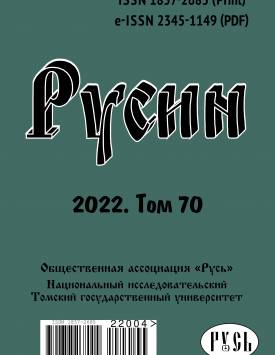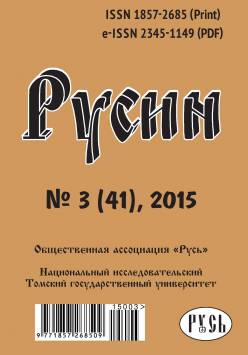Perception of the emotional vocabulary of the first and second language lexicons in the conditions of language contact (Turkic-Russian heritage bilingualism)
Currently, the influence of a particular culture on all aspects of the society life is not in doubt. This also applies to the emotional sphere. It is believed that, despite the universality of emotions as a mental mechanism, there are emotions that are common to all ethnic groups and those ethnospecific emotions that are formed in a certain culture. Differences are largely manifested not only in the expression of emotions, including language expression, but also in their perception. This problem becomes especially relevant in the context of language contact, namely when addressing the problem of the relationship between emotionality and bilingualism. The purpose of this article is to identify the peculiarities of the perception of diminutives as representatives of the emotional vocabulary by Turkic-Russian bilinguals in the first and second languages. The experiment employed units of the Russian, Khakass, and Tatar languages, among which there were diminutives (the target group) - emotional words, that are a hallmark of Russian speech, but also available in the Turkic languages. The experiment was conducted using E-prime software first in groups of native Russian speakers and Turkic-Russian bilinguals on the material of the Russian language (23 people in each group), then in groups of Khakass-Russian and Tatar-Russian bilinguals in their native languages (16 and 17 people, respectively). The data were used for a covariance analysis, which showed that all groups of respondents needed much more time to respond to emotional words compared to neutral words (p<0.001), regardless of the language of the stimuli. At the same time, either frequency and/or length of the word significantly affects the reaction time. Comparison of the results obtained on the material of the native languages of bilinguals with the results obtained on the material of the Russian language showed that bilinguals react significantly longer to all groups of words (p<0.001). The results, on the one hand, do not confirm the data available in the literature on the advantage of processing emotional words in the first language. However, they correlate with the conclusions about the impact on perception of the type of bilingualism, in our case - heritage, late, unbalanced towards the second language.
Keywords
bilingualism, emotionality, experimental research, diminutives, reaction timeAuthors
| Name | Organization | |
| Vasilyeva Alina V. | Tomsk State University | alvasilevaaa@mail.ru |
References

Perception of the emotional vocabulary of the first and second language lexicons in the conditions of language contact (Turkic-Russian heritage bilingualism) | Rusin. 2022. № 70. DOI: 10.17223/18572685/70/15
